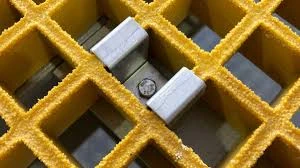
-
 Afrikaans
Afrikaans -
 Albanian
Albanian -
 Amharic
Amharic -
 Arabic
Arabic -
 Armenian
Armenian -
 Azerbaijani
Azerbaijani -
 Basque
Basque -
 Belarusian
Belarusian -
 Bengali
Bengali -
 Bosnian
Bosnian -
 Bulgarian
Bulgarian -
 Catalan
Catalan -
 Cebuano
Cebuano -
 China
China -
 China (Taiwan)
China (Taiwan) -
 Corsican
Corsican -
 Croatian
Croatian -
 Czech
Czech -
 Danish
Danish -
 Dutch
Dutch -
 English
English -
 Esperanto
Esperanto -
 Estonian
Estonian -
 Finnish
Finnish -
 French
French -
 Frisian
Frisian -
 Galician
Galician -
 Georgian
Georgian -
 German
German -
 Greek
Greek -
 Gujarati
Gujarati -
 Haitian Creole
Haitian Creole -
 hausa
hausa -
 hawaiian
hawaiian -
 Hebrew
Hebrew -
 Hindi
Hindi -
 Miao
Miao -
 Hungarian
Hungarian -
 Icelandic
Icelandic -
 igbo
igbo -
 Indonesian
Indonesian -
 irish
irish -
 Italian
Italian -
 Japanese
Japanese -
 Javanese
Javanese -
 Kannada
Kannada -
 kazakh
kazakh -
 Khmer
Khmer -
 Rwandese
Rwandese -
 Korean
Korean -
 Kurdish
Kurdish -
 Kyrgyz
Kyrgyz -
 Lao
Lao -
 Latin
Latin -
 Latvian
Latvian -
 Lithuanian
Lithuanian -
 Luxembourgish
Luxembourgish -
 Macedonian
Macedonian -
 Malgashi
Malgashi -
 Malay
Malay -
 Malayalam
Malayalam -
 Maltese
Maltese -
 Maori
Maori -
 Marathi
Marathi -
 Mongolian
Mongolian -
 Myanmar
Myanmar -
 Nepali
Nepali -
 Norwegian
Norwegian -
 Norwegian
Norwegian -
 Occitan
Occitan -
 Pashto
Pashto -
 Persian
Persian -
 Polish
Polish -
 Portuguese
Portuguese -
 Punjabi
Punjabi -
 Romanian
Romanian -
 Russian
Russian -
 Samoan
Samoan -
 Scottish Gaelic
Scottish Gaelic -
 Serbian
Serbian -
 Sesotho
Sesotho -
 Shona
Shona -
 Sindhi
Sindhi -
 Sinhala
Sinhala -
 Slovak
Slovak -
 Slovenian
Slovenian -
 Somali
Somali -
 Spanish
Spanish -
 Sundanese
Sundanese -
 Swahili
Swahili -
 Swedish
Swedish -
 Tagalog
Tagalog -
 Tajik
Tajik -
 Tamil
Tamil -
 Tatar
Tatar -
 Telugu
Telugu -
 Thai
Thai -
 Turkish
Turkish -
 Turkmen
Turkmen -
 Ukrainian
Ukrainian -
 Urdu
Urdu -
 Uighur
Uighur -
 Uzbek
Uzbek -
 Vietnamese
Vietnamese -
 Welsh
Welsh -
 Bantu
Bantu -
 Yiddish
Yiddish -
 Yoruba
Yoruba -
 Zulu
Zulu
Exploring the Benefits and Features of Fiberglass Boats for Water Adventures
The Evolution and Benefits of Fiberglass Vessels
Fiberglass vessels have transformed the maritime industry, marrying aesthetics with functionality and redefining what boat building entails. From recreational fishing boats to luxury yachts, fiberglass has become a preferred material. This article explores the evolution of fiberglass vessels, their advantages, and their growing popularity in the maritime world.
The Rise of Fiberglass
The journey of fiberglass as a boat-building material began in the mid-20th century. Before that, wood and metal were the predominant materials used in vessel construction. While both had their advantages—like wood's natural buoyancy and metal's strength—each also had significant downsides. Wooden boats required constant maintenance due to susceptibility to rot and insect damage. Metal boats, on the other hand, were prone to corrosion over time, particularly when exposed to saltwater.
In the 1930s, scientists began experimenting with fiberglass, a composite material made from fine glass fibers and resin. This synthetic alternative offered a unique combination of lightweight, durability, and resistance to corrosion. The introduction of fiberglass vessels in the 1950s marked a significant shift in boat manufacturing. Initially, they were met with skepticism; however, their performance and longevity convinced many boaters and manufacturers to embrace this new technology.
Advantages of Fiberglass Vessels
1. Durability One of the standout features of fiberglass is its remarkable durability. Unlike wood, fiberglass does not rot or corrode, which significantly extends a vessel's lifespan. This resilience makes fiberglass boats well-suited for harsh maritime conditions, including exposure to saltwater and extreme weather.
2. Low Maintenance Maintaining a fiberglass vessel requires significantly less effort compared to traditional wooden or metal boats. A simple wash-down after each outing is often sufficient to keep it looking good. Unlike wood, which might require varnishing or sealing, fiberglass can maintain its integrity and appearance with minimal upkeep.
fiberglass vessel

3. Weight Efficiency Fiberglass is notably lighter than traditional materials like wood or metal, which translates to enhanced fuel efficiency. Boats constructed from fiberglass can achieve faster speeds with less power, making them more economical on fuel and more environmentally friendly.
4. Design Flexibility The molding process for fiberglass allows for more intricate and creative designs. This versatility enables designers to craft stunning interior layouts and innovative hull shapes, contributing to both functionality and aesthetic appeal. As a result, fiberglass vessels can be tailored to meet specific needs, whether for leisure, fishing, or commercial purposes.
5. Affordability Although the initial investment might be comparable to that of other materials, the long-term savings associated with fiberglass vessels make them a more economical choice. Their durability translates to fewer repairs, lower maintenance costs, and a lengthy lifespan, providing better overall value.
The Environmental Considerations
As with any synthetic material, environmental implications are a concern. The production and disposal of fiberglass can contribute to pollution and waste. However, the industry is increasingly focusing on sustainability, exploring ways to recycle fiberglass and lessen its environmental footprint. Innovations in bio-composites and eco-friendly resin formulations are paving the way for a more sustainable future in boat manufacturing.
The Future of Fiberglass Vessels
The demand for fiberglass vessels continues to grow, fueled by advancements in technology and materials science. Modern manufacturing techniques, including computer-aided design (CAD) and automated processes, are enhancing the efficiency and precision of fiberglass boat production. Moreover, the trend toward electric and hybrid propulsion systems finds a fit in fiberglass vessels, as their lightweight nature complements eco-friendly technologies.
In conclusion, the evolution of fiberglass vessels represents a remarkable shift in the maritime industry. Their durability, low maintenance, weight efficiency, and design flexibility have secured their place as preferred choices for boaters around the world. While environmental concerns remain, ongoing innovations suggest a promising future for fiberglass. As boat-building techniques continue to advance, fiberglass will likely remain a cornerstone of the maritime world, satisfying both aesthetic demands and practical needs for years to come.









